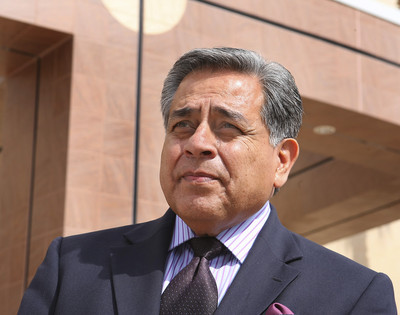Lawmaker to pursue employer penalties
CARSON CITY -- A lawmaker who successfully pushed for a bill to penalize Nevada employers for knowingly hiring illegal immigrants said she will try again next year after the attorney general's office said the provisions of the 2007 measure are unenforceable.
Assemblywoman Ellen Koivisto, D-Las Vegas, one of several lawmakers who sought the law to impose sanctions against employers, said the issue isn't going away and the Legislature needs to tackle it again in 2009.
With Arizona enforcing its own tough law to penalize employers who knowingly employ illegal residents, Nevada is likely to see its problems exacerbated as immigrants seek work elsewhere, she said.
"When our unemployment rate is up, it's a problem and I think it has to be looked at," Koivisto said.
But she acknowledged that the final form of Assembly Bill 383 passed by the Legislature would not accomplish much even if it were enforced.
"I supported the final version because it is all we had," Koivisto said.
"I felt at the time it was feel-good legislation that would not accomplish anything. It had no teeth."
The law authorizes the state Tax Commission to consider imposing an administrative fine against a Nevada employer, but only after a finding by the U.S. attorney general that the employer had engaged in the unlawful hiring of an illegal immigrant.
The Tax Commission was told by the attorney general's office earlier this month not to proceed with regulations implementing the legislation because illegal immigration is a federal issue and federal law supersedes state law.
The opinion, written by Senior Deputy Attorney General Karen Dickerson for Attorney General Catherine Cortez Masto, said the fines would be contrary to the federal Immigration Reform and Control Act, or IRCA.
The bill also contains provisions aimed at stopping human trafficking of illegal immigrants, which were not affected by the opinion.
The bill originally proposed pulling the license of a business that willfully hired illegal immigrants, but was watered down in a compromise to get it passed.
Fernando Romero, president of Hispanics in Politics, said he testified in 2007 that the measure would be found unenforceable for the reasons cited in the March 3 legal opinion by the attorney general. Romero and the ACLU of Nevada testified in opposition to the measure.
"I'm glad the AG ruled that way," he said. "I'm really not surprised at all. It is a function of the federal government and it should be left up to the feds."
Romero said he could not comment on why other states are proceeding with enforcement of similar laws, such as Arizona. But the law there, which would allow authorities to revoke the business licenses of companies for multiple infractions of hiring illegal workers, is being challenged in federal court, he said.
Lawmakers may want to look at the issue again next session, but Romero said there is a chance that a new president and Congress will act on comprehensive immigration reform by then, making the issue moot.
Sen. Bob Beers, R-Las Vegas, who unsuccessfully sought a measure in 2007 to make English the official language of the state, said the advisory opinion from the attorney general is just that: an opinion. It might take a court action by some citizen group to try to get the law enforced, he said.
Beers said he can see no reason why the state should not be able to take enforcement action against employers who knowingly hire illegal residents.
Bob Dane, a spokesman for the Federation for American Immigration Reform, a group he described as the largest immigrant reform group in the country, said states and municipalities do have the right to regulate how business is conducted in their jurisdictions.
"Cities can take reasonable steps to protect citizens if the federal government can't or won't enforce the immigration laws," he said.
The attorney general's opinion does leave some room for the Legislature to maneuver, if it wants to take up the issue again. Dickerson said the act prohibits state or local laws imposing civil or criminal sanctions -- other than through licensing and similar laws. This phrase means the suspension, revocation or refusal to renew a state or local license or permit.
But this avenue has its limits, Dickerson said. In the case of Lozano v. City of Hazleton, a federal judge overturned a local ordinance using this exception in the act to suspend the business licenses of employers who knowingly hired illegal immigrants.
The ruling suggests that the exception "does not grant states carte blanche to impose direct regulations on employment of immigrants," she said.
Nevada ranks 10th in the number of illegal aliens at 240,000, according to a 2005 U.S. Department of Homeland Security study.

















